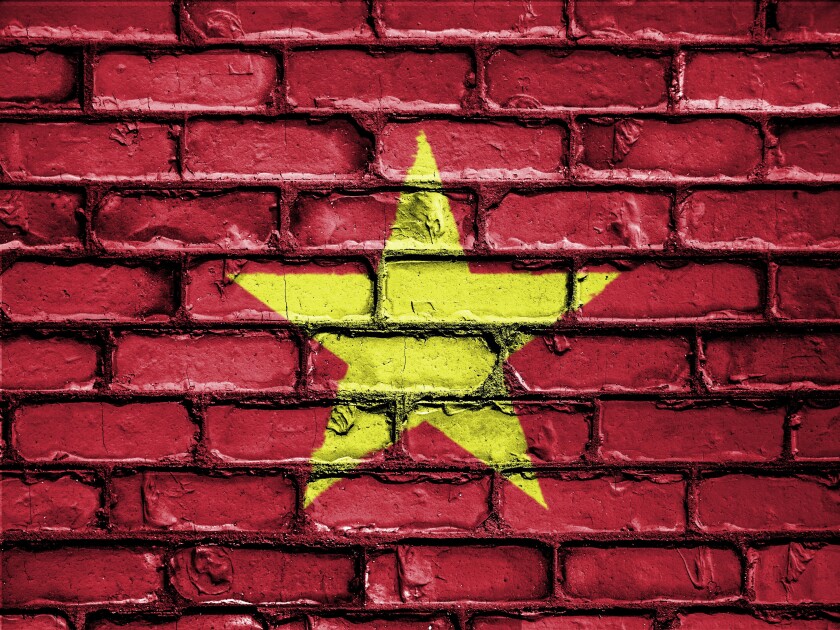The Hague Agreement Concerning the International Registration of Industrial Designs (the Hague Agreement) officially took effect in Vietnam on December 30 2019. Since then, the Hague Express Database reports that more than 1,300 international design applications have designated Vietnam, and many of them have been examined by the Intellectual Property Office of Vietnam (the IP Office) before a statement of grant of protection was issued. However, from the time the Hague Agreement took effect until the amended Intellectual Property Law (the IP Law) came into force on January 1 2023, there were no legal documents regulating the process and procedures for examining these applications in Vietnam.
This caused some difficulties in the examination process and many applications filed from 2020 to date remain in limbo, with the applicants having submitted responses to refusals but yet to receive further results on the grant or refusal of protection.
The amended IP Law introduced Article 93.9 on the validity of international registrations of industrial designs according to the Hague Agreement. More recently, Decree 65/2023/ND-CP (Decree 65) introduced a new section on the filing and processing of Hague international design applications, with detailed regulations on the handling of Hague applications originating in Vietnam and Hague applications designating Vietnam.
These new regulations have generally improved the international application process in Vietnam for the IP Office and design applicants; however, they have not resolved some existing problems and in some cases have created more burdens for applicants.
Submission of priority documents
Article 24.8 of Decree 65 requires that within three months from the date of the International Bureau of the WIPO's notification of the Hague Application designating Vietnam, applicants wishing to benefit from a priority must submit documents proving their priority right to the IP Office for approval. This is a new requirement that applies to all international design applications designating Vietnam starting from the effective date of Decree 65 (August 23 2023).
Generally, communication between the IP Office and foreign applicants must be intermediated by an IP agent. As Vietnam does not accept electronic priority documents or participate in WIPO's Digital Access Service system, applicants must work with local IP agents to prepare priority documents in paper form and submit them directly at the IP Office. This is a new burden for applicants as they previously only needed to work with the local agent when the application was rejected.
In practice, the statutory time limit of three months cannot be extended, and the procedure for receiving priority documents at the IP Office requires clearly indicating the Vietnamese application number corresponding to the international design application. This has caused difficulties for applicants and IP agents, as checking the Vietnamese application number assigned to the international design application is inconvenient.
Unclear regulations on powers of attorney
Though transactions between the IP Office and foreign applicants normally need to go through a local agent, there are no specific regulations on the submission of powers of attorney when the applicant wants to submit priority documents or a response to a notification of refusal for a Hague design application. Currently, the applicant’s responses are all filed via a local agent and are accompanied by a power of attorney. However, the deadline for submitting the power of attorney is unclear, as is the possibility of any deadline extension, creating further challenges.
Processing time after response to notification of refusal
Articles 24.6 and 24.7 of Decree 65 stipulate that if the applicant’s corrections of defects and/or responses are acceptable, the IP Office will issue a statement of grant of protection. If a three-month period passes without an acceptable response/correction from the applicant, the IP Office will issue a decision to refuse protection. However, there is no regulation on the time limit for the IP Office to provide this further communication.
Many applicants have responded to notifications of refusals without receiving any subsequent notification/decision from the IP Office. This makes the applicants uncertain about whether their applications will be protected in Vietnam, and when the registration procedure will be completed.
Reproductions of designs accepted for protection are not published
Decree 65 sets out that the IP Office’s statement of grant of protection is to be published in the Industrial Property Gazette within two months from the date of the statement. However, it is unclear whether reproductions of the designs accepted for protection will also be published. Specifically, the content accepted for protection after amendments may not be accessible. Tilleke & Gibbins believes that reproductions of designs accepted for protection need to be published and included in the online database of the IP Office to facilitate the public’s access and searches for information.
Other issues
The current regulations do not provide a procedure for voluntary amendments of international designs (such as amending the descriptions or drawings), assignments, or changes made only for the national phase in Vietnam. In addition, although requirements for industrial design specifications have been reduced under the amended IP Law, they are still not in line with the requirements in other countries. This leads to objections to many specifications of international design applications when entering the national phase in Vietnam; the new regulations are not as favourable for applicants as expected.
As IP practitioners, Tilleke & Gibbins hopes that the upcoming circular of the Ministry of Science and Technology on industrial property (expected to be issued in December 2023) and the IP Office’s guidelines on industrial design examination will be adjusted to provide a legal basis to resolve the above issues.












